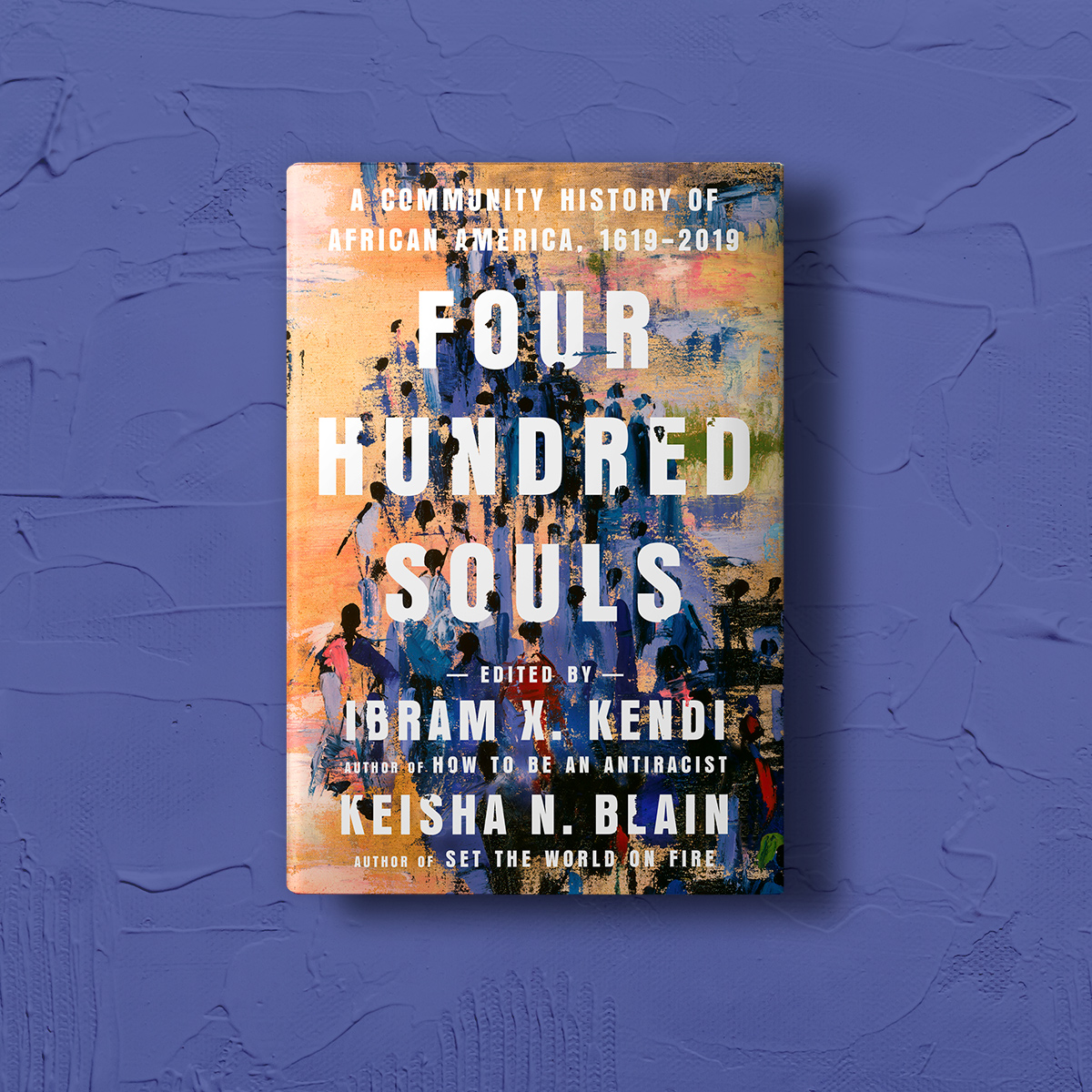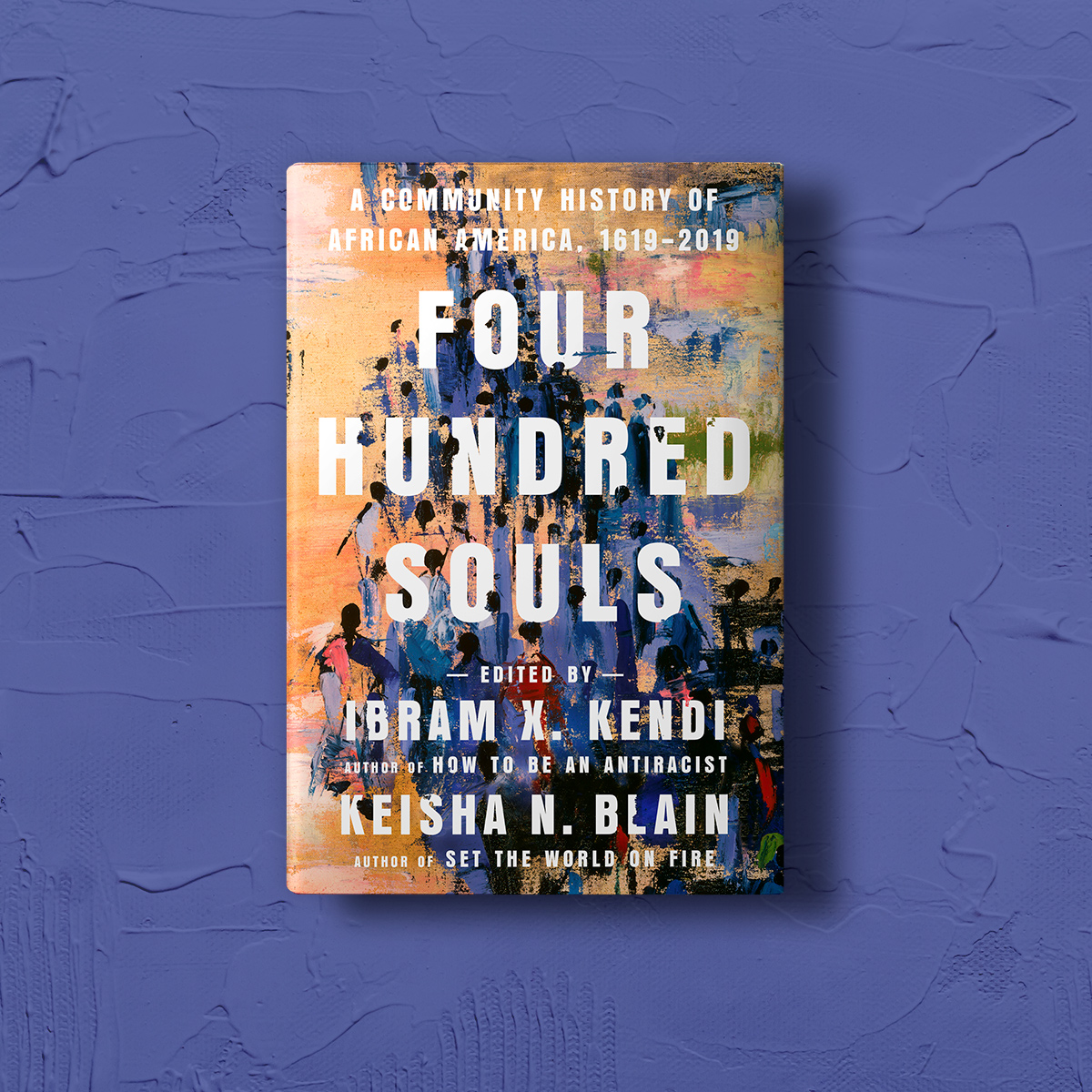I’m pleased to unveil the astonishing cover of FOUR HUNDRED SOULS: A Community History of African America, 1619-2019, which I edited alongside the award-winning historian @KeishaBlain. This historic volume is coming out @OneWorldLit on Feb. 2, 2021. 1/9
penguinrandomhouse.com/books/624334/f…
penguinrandomhouse.com/books/624334/f…

Histories of Black America have almost always been written by individuals, usually men. But why not a community of writers chronicling the history of a community? 2/9
penguinrandomhouse.com/books/624334/f…
penguinrandomhouse.com/books/624334/f…

@KeishaBlain and I assembled a community of 80 writers and 10 poets who represented some of the best Black recorders of Black America at its four-hundred-year mark. Though the project was conceived in 2018, most of the pieces were written in 2019. 3/9
penguinrandomhouse.com/books/624334/f…
penguinrandomhouse.com/books/624334/f…

We wanted the community to be writing during the four hundredth year in 2019. We wanted FOUR HUNDRED SOULS to write history and be history, a diary entry in the history of letters when Black America symbolically turned four hundred years old. 4/9
penguinrandomhouse.com/books/624334/f…
penguinrandomhouse.com/books/624334/f…

In different ways and forms, eighty writers each chronicled five years of African America’s history in succession, amounting to four hundred years. Each of the writers related that history, those years, to our time. 5/9
penguinrandomhouse.com/books/624334/f…
penguinrandomhouse.com/books/624334/f…

The volume’s first writer, Pulitzer Prize-winning creator of the 1619 Project @nhannahjones writes from Aug. 20, 1619 to Aug. 19, 1624. The volume’s final writer, Black Lives Matter co-founder @aliciagarza writes from Aug. 20, 2014 to August 19, 2019. 6/9
penguinrandomhouse.com/books/624334/f…
penguinrandomhouse.com/books/624334/f…

All 90 contributors are leaders in their fields. I can't wait to introduce them to you. The lineup is beyond belief. 7/9
penguinrandomhouse.com/books/624334/f…
penguinrandomhouse.com/books/624334/f…

FOUR HUNDRED SOULS has ten sections, each spanning forty years. Each section concludes with a poem. Sometimes history is best captured by poets—as these ten Black poets show. Indeed, the lives of Black Americans have been nothing short of poetic. 8/9
penguinrandomhouse.com/books/624334/f…
penguinrandomhouse.com/books/624334/f…

I can’t tell you how excited I am to get this volume in your hands. I wish 2/2/21 was tomorrow. But you can certainly pre-order today. #FourHundredSouls 9/9
penguinrandomhouse.com/books/624334/f…
penguinrandomhouse.com/books/624334/f…

• • •
Missing some Tweet in this thread? You can try to
force a refresh

















